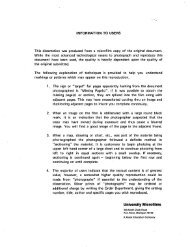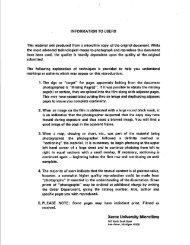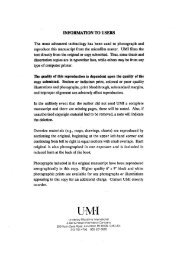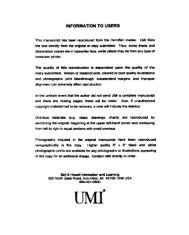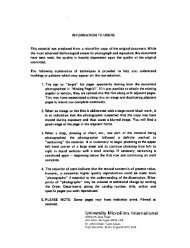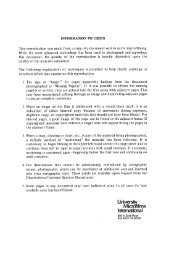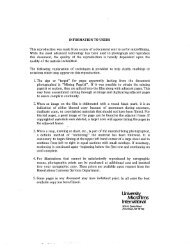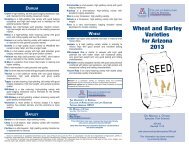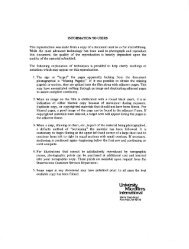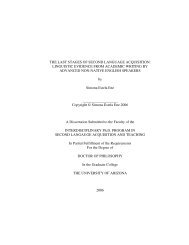1 THE AUTONOMIC PHYSIOLOGY OF TERROR MANAGEMENT ...
1 THE AUTONOMIC PHYSIOLOGY OF TERROR MANAGEMENT ...
1 THE AUTONOMIC PHYSIOLOGY OF TERROR MANAGEMENT ...
Create successful ePaper yourself
Turn your PDF publications into a flip-book with our unique Google optimized e-Paper software.
measure of state self-esteem, consistently found significant correlations between lower<br />
state self-esteem and threat-related emotions such as anxiety, hostility, and depression.<br />
To more precisely test the predicted causal relationship between state self-esteem<br />
and anxiety/threat, however, Greenberg et al. (1992) manipulated people’s sense of self-<br />
worth by giving them very positive or neutral feedback about their personality.<br />
Participants then watched either a video of death-related footage such as an autopsy and<br />
electrocution, or of neutral nature-related footage. Those who received the neutral<br />
feedback and viewed the death footage reported heightened anxiety. Those who received<br />
the positive feedback, the self-esteem boost, did not report this increase in anxiety.<br />
In a conceptual replication (Greenberg et al., 1992), control participants showed<br />
heightened skin conductance, a measure of sympathetic nervous system arousal that in<br />
response to threat is generally taken to indicate anxiety, in anticipation of an electric<br />
shock. However, those who received positive intelligence feedback, and thus a boost to<br />
self-esteem, did not show this increase in skin conductance. Further, follow-up showed<br />
that the effects of this self-esteem boost on inhibited skin conductance did not appear<br />
mediated by self-reported positive mood. Thus, these studies provided strong evidence<br />
that high state (manipulated) self-esteem buffers people from the experience of anxiety.<br />
Security of self-esteem and protection from threat<br />
In addition to the mere level of state self-esteem, we should also predict that the<br />
security of self-esteem serves to buffer from threat and anxiety. Even a person with high<br />
state self-esteem, if it is fragile and insecure, may be prone to heightened anxiety and<br />
threat responding. People may feel momentarily good about themselves, but with a<br />
14



